As a passionate gamer who enjoys both competitive and casual gaming, I understand the importance of finding the best laptop for Among Us. This immensely popular social deduction game may not be the most demanding in terms of graphics and processing power, but there are still specific factors to consider when selecting the ideal laptop to ensure an enjoyable gaming experience.
My approach to finding the best laptop for Among Us involved reviewing an extensive laptop spreadsheet of recent releases, comparing specs and reviews from both professional sources and fellow gamers on platforms like the Among Us subreddit and Discord channels. By considering topic-specific requirements such as display quality, portability, and battery life, I've narrowed down the top laptops that cater to various price ranges without compromising on the essential features for Among Us enthusiasts.
An essential aspect to consider is the laptop's display, as the game relies heavily on visual cues and communication. A laptop with a sharp and vivid display will enable you to spot any suspicious activity and better immerse yourself in the world of spaceship crewmates and impostors. Portability is another factor to keep in mind, as Among Us is a game best enjoyed with friends, and a lightweight laptop makes it easier to carry around for spontaneous gaming sessions. Finally, a laptop with a solid battery life is crucial for those intense, long-lasting games that keep you on the edge of your seat. So, rest assured that this guide will help you find the perfect laptop tailored to your Among Us gaming needs.
Powerful Processors
The processor is the most important component in your laptop if you're looking to do any kind of animation work; even though the GPU is crucial for rendering, it's not as important as the CPU. To decide on the right processor for your Among Us laptop, you'll need to take into account the current market trends, the amount of money you're willing to spend, and your expectations in terms of performance and battery life.
Currently, Apple has released MacBooks with their own ARM-based M1, M1 Pro, M1 Max and M2 system-on-chip modules; they offer exceptional single-core performance and battery life. In the Windows camp, AMD has managed to take 20% of the CPU market; AMD has released the 6th generation Ryzen processors, while we're still waiting for Intel's 13th-gen processors to reach laptops (where 12th generation is Intel's latest). Both Intel's and Apple's silicon chips adopted a hybrid performance/efficiency core design (based on big.LITTLE). In terms of battery life, Ryzen models are best if you need a good battery life in a PC laptop.
MacBooks are a popular choice for animators, and for good reason – they're sleek, well-designed, and have excellent battery life. If you're looking for a gaming laptop – go with an H-series processor from AMD or Intel; these processors offer better performance at the expense of battery life. I use Cinebench R23 to compare different processors since it's a popular benchmark used by many professionals who need fast single-core performance (e.g., animators).
| Price | Minimum CPU Recommendation | Recommended CPU | High-end CPU |
|---|---|---|---|
| < $500 | AMD Ryzen 3 3200U | Intel Core i3-10110U | Intel Core i5-10210U |
| $500 – $800 | AMD Ryzen 5 4500U | Intel Core i5-1035G1 | Intel Core i7-1065G7 |
| $800+ | AMD Ryzen 7 4700U | Intel Core i7-1065G7 | Intel Core i7-1185G7 |
If you're looking for a more affordable option – look for an AMD Ryzen 5 or Intel Core i5 processor; these will provide plenty of power without breaking the bank. On the high-end, you can opt for an Intel Core i7-1185G7 or an AMD Ryzen 7 4700U for better single-core performance; these chips are expensive though and may not be necessary for most users.
Graphics Power
Nvidia continues to dominate the laptop GPU market. They recently released the RTX 40 series, but these are not yet available on laptops (expected in 2023). The latest notebook cards are in the RTX 30 series, such as the RTX 3070 Ti. Unfortunately, the gap between power-limited notebook graphics and desktop graphics cards has widened in recent years, thanks to desktop GPUs becoming much more power-hungry.
Additionally, Nvidia has discontinued the Max-Q label for its RTX graphics cards. Now, an exact GPU wattage is determined by a laptop manufacturer (OEM). This means that, even with the same GPU chipset, performance can vary widely between different laptops.
If you're looking for a gaming laptop, you'll want to make sure it has a dedicated GPU from either Nvidia or AMD. For photo editing on a MacBook, a dedicated GPU is not required but can be helpful. To compare different GPUs, I use 3DMark since it tests the entire graphics pipeline, from the CPU to the GPU. However, synthetic benchmarks may not be enough in some cases, so I supplement them with actual game performance tests.
To know what to expect at each price point, here are our recommendations:
| Price Range | Recommended Graphics Card |
|---|---|
| Minimum | Iris Xe Graphics G7 |
| Recommended | Quadro T500 |
| High-end | GeForce MX550 |
Finally, if you're looking at a high-end MacBook Pro, be aware that these models have power limitations due to their reliance on Apple's "Dynamic Power Management" (DPM).
RAM Mastery
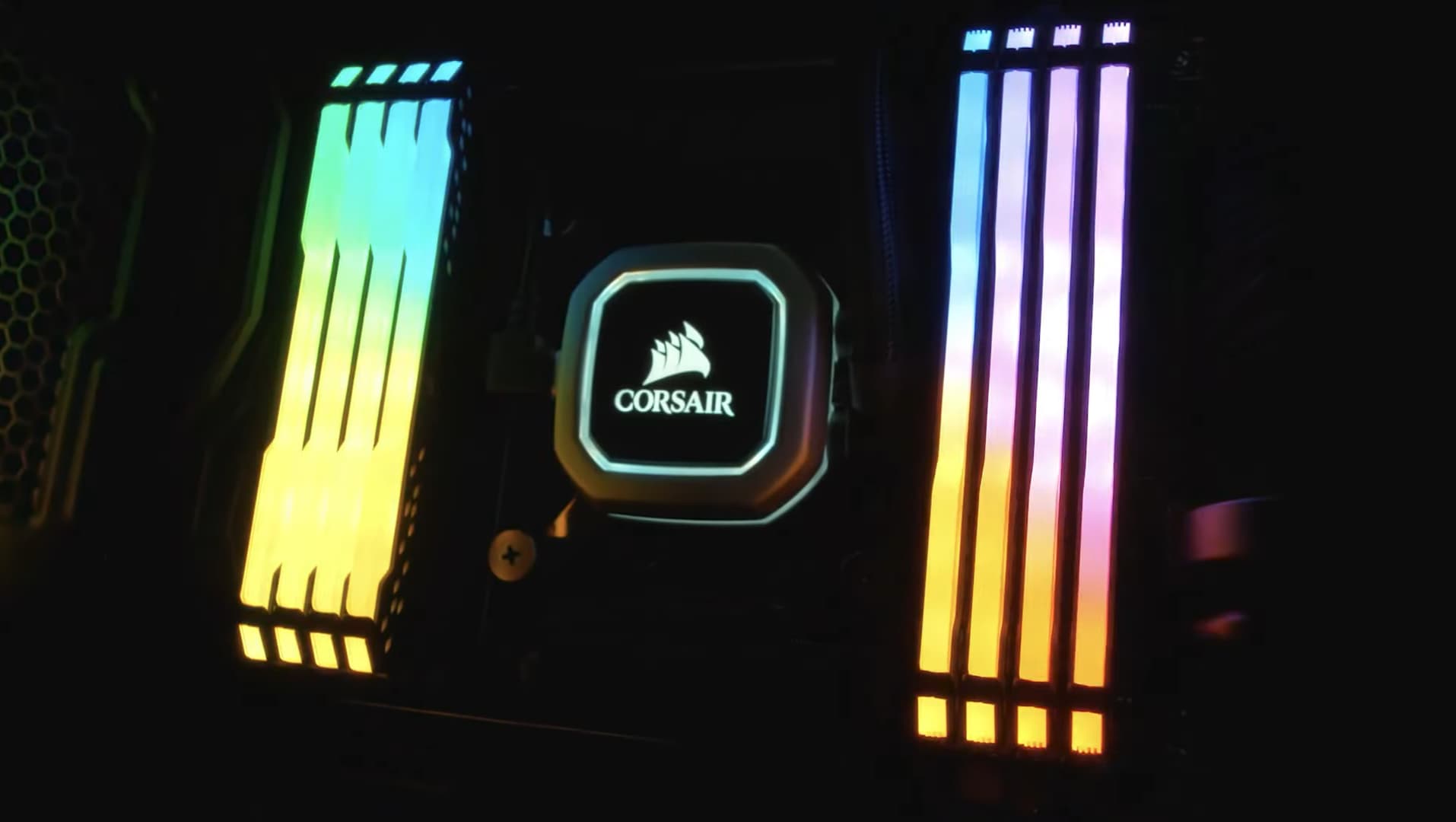
The amount of RAM is one of the most important components in a gaming laptop. It's not as critical as the graphics card, but it still needs to be taken into account when choosing a laptop for Among Us. In the past few years, most mid-range laptops come with 16 GB of RAM, and high-end ones with 32 GB or more. Latest-gen Intel and AMD CPUs support DDR4 and DDR5, though DDR5 is still quite expensive and needs time to mature as a technology.
Most laptops come with 8 GB of RAM, which is more than enough for most people. However, if you want to play some of the latest games on high settings, 16 GB would be preferable. Also, if you're looking for a long-lasting laptop that can handle multiple years' worth of AAA titles – 32 GB might be your best bet.
When it comes to DDR5 vs DDR4, it's a bit early to tell whether DDR5 is worth the extra cost. So I'd recommend getting a laptop with DDR4 memory for now and upgrading to DDR5 later on when prices have dropped and we have more data about its performance in laptops. Also, keep in mind that the amount of RAM can be upgraded later on, but you'll need to make sure that there's enough free space inside your laptop and that the RAM module is compatible with your system (not all laptop manufacturers label this clearly).
To sum up, here are my recommended specs for different price brackets:
| Price Bracket | Recommended RAM |
|---|---|
| Minimum | 8 GB |
| Recommended | 16 GB |
| High-end | 32 GB |
When buying a laptop for Among Us, make sure to pay close attention to the RAM specs as well. At the very least, 8 GB is enough to get you through most games and tasks, but if you want to future-proof your laptop and play some of the most demanding titles, 16 GB or even 32 GB might be the way to go. Lastly, don't forget to check out the RAM type – DDR4 should be your safest bet for now.
FAQs Answered
Q: Can you play Among Us on a laptop?
Absolutely! Among Us is a popular online multiplayer game that can be played on various laptops.
What are the minimum system requirements to play Among Us on a laptop?
To run Among Us on a laptop, you'll need a laptop with at least an AMD Ryzen 3 3200U processor or an i3-10110U processor. For graphics, you'll need at least Iris Xe Graphics G7 or Quadro T500. Additionally, make sure your laptop has 8 GB of memory.
Which laptops are best for playing Among Us?
The best laptops for playing Among Us would be those with medium-tier specs. Look for laptops with an i5-10210U processor and 16 GB of memory. As for graphics, laptops with GeForce MX550 would be ideal.
Is a dedicated graphics card necessary to play Among Us on a laptop?
No, a dedicated graphics card is not necessary to play Among Us on a laptop. Integrated graphics, such as Iris Xe Graphics G7, are sufficient for this game.
Can a low-end laptop handle Among Us?
Yes, low-end laptops can handle Among Us. As mentioned earlier, Among Us can be played on laptops with an AMD Ryzen 3 3200U or an i3-10110U processor, Iris Xe Graphics G7, and 8 GB of memory.
How much RAM is needed to play Among Us on a laptop?
To play Among Us on a laptop, 8 GB of memory is the minimum requirement. This should be sufficient for a smooth gameplay experience.
What are the recommended laptop specs for playing Among Us?
For an optimal Among Us experience, we recommend laptops with an i5-10210U processor, GeForce MX550 graphics, and 16 GB of memory. This will ensure smooth gameplay and allow you to enjoy the game without any performance issues.
Can I play Among Us on a Chromebook?
Unfortunately, Among Us is not officially supported on Chromebooks. However, there are workarounds available that allow you to run Android apps, including Among Us, on certain Chromebook models. Make sure to check if your specific Chromebook model supports running Android apps before attempting to play Among Us on it.
What laptops can run Among Us smoothly?
Laptops such as the Lenovo ThinkPad X1 Carbon Gen 9 (priced at $280) and the ASUS ZenBook 13 UX325EA-EH71 (priced at $730) are great options for running Among Us smoothly. These laptops meet the recommended specs for playing Among Us and provide a reliable performance for the game.
Is a touchscreen laptop necessary to play Among Us?
No, a touchscreen laptop is not necessary to play Among Us. The game can be played using a mouse and keyboard, and a touchscreen is not required for any gameplay interactions.
5 Best Laptops for Among Us
Acer Swift 3 SF314-59-75QC
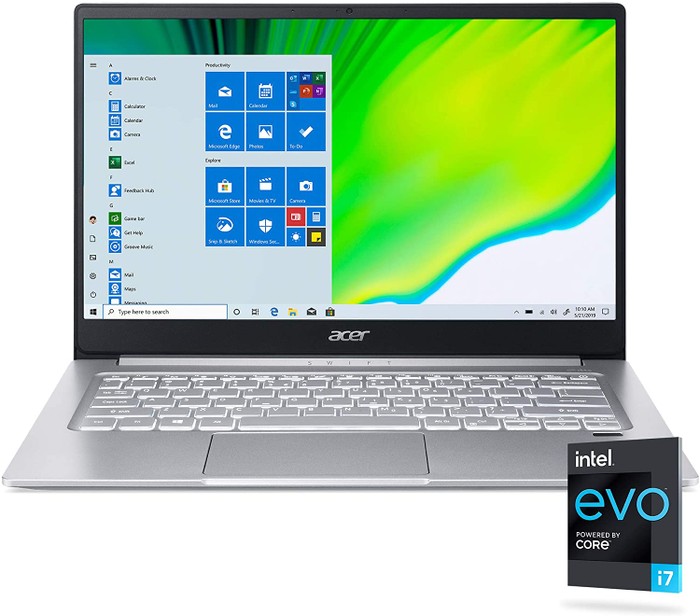
Pros and cons
- Compact, lightweight, and ergonomic design
- Sturdy build quality
- High temperatures during gaming
- Poor audio quality
Alternatives

HP Pavilion
- Numpad
- Backlit keyboard
- Mediocre graphics card (Iris Xe Graphics G7 96EUs)
- Its screen gives away its price
ASUS ZenBook 13 UX325EA-EH71
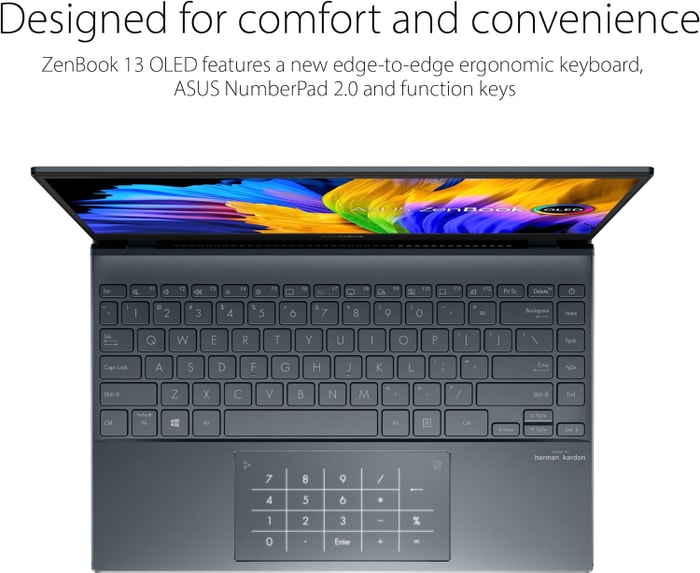
Pros and cons
- Sleek, lightweight frame
- Powerful overall and gaming performance
- Weak speakers
- Display could be brighter
Alternatives
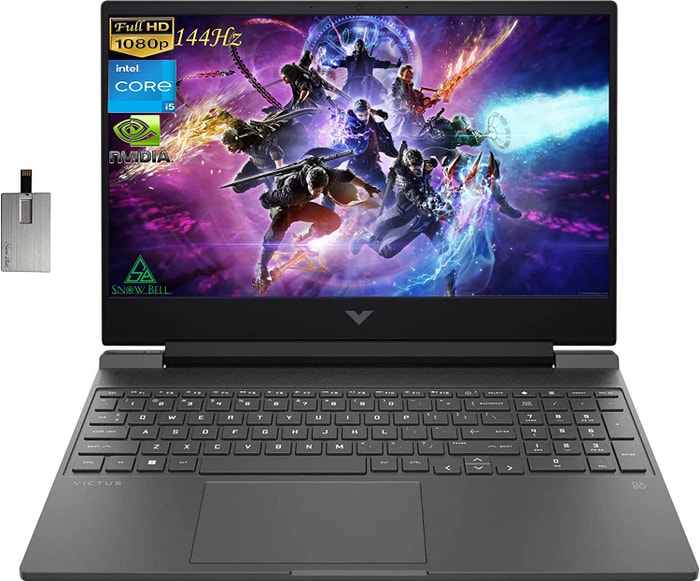
HP Victus
- Delivers smooth gameplay at 1080p.
- Fast SSD.
- No variable refresh rate to reduce screen tearing.
- Display has slow response time causing ghosting.
Lenovo Legion 5i Pro 16

Pros and cons
- Stylish, sleek form factor
- Gorgeous display
- Webcam quality is poor
- No biometric features
Alternatives
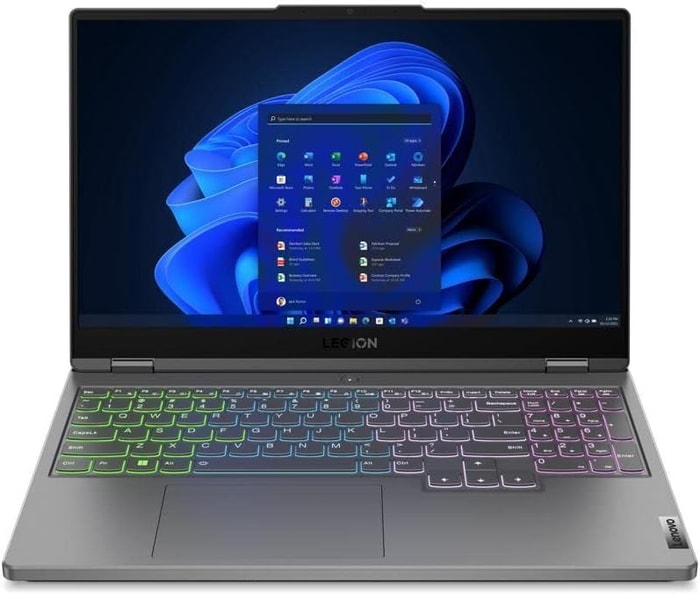
Lenovo Legion 5
- Solid gaming and productivity performance
- Handsome 16-inch screen with 165Hz refresh
- A tad overweight, with enormous power brick
- Noisy cooling fans
ASUS ROG Strix Scar
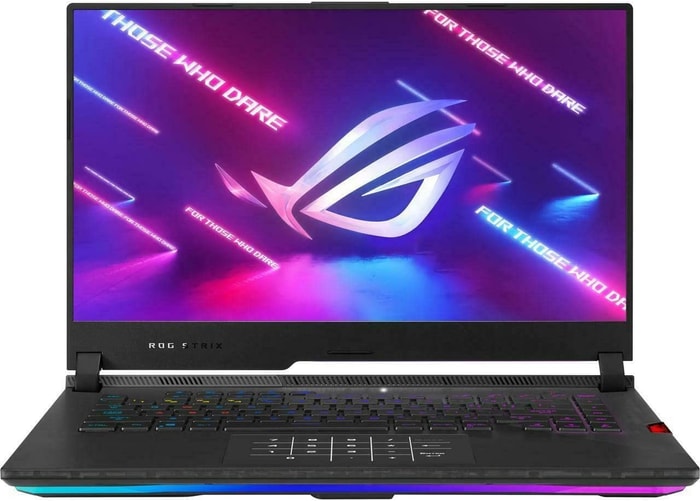
Pros and cons
- Sturdy construction
- Fast Wi-Fi 6E
- Limited display angle
- No biometric login
Alternatives
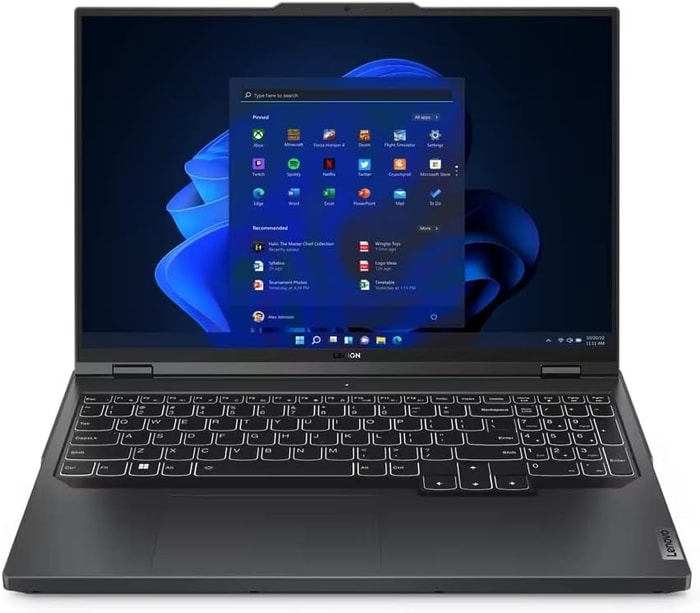
Lenovo Legion Pro 5
- Good build quality and design
- Good screen and IO
- No Thunderbolt or biometrics
- Some hotspots while gaming
HP Omen 17

Pros and cons
- QHD display with 165 Hz
- Advanced Optimus
- Slightly below-average performance for an RTX 4080
- High noise level
Alternatives
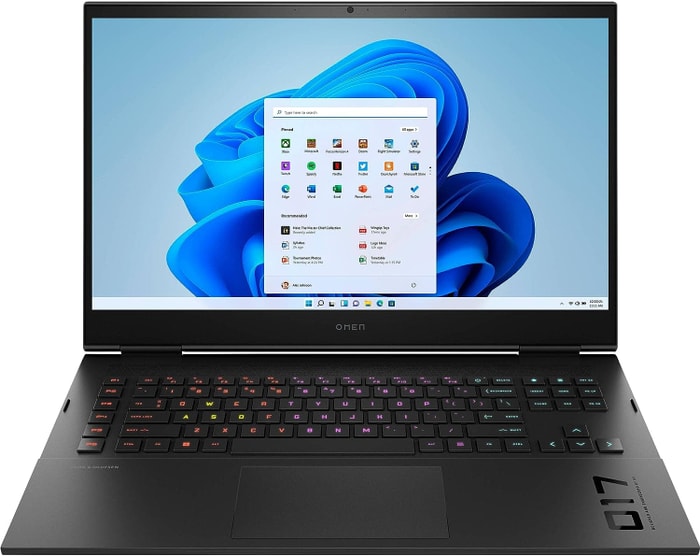
HP Omen
- QHD display with 165 Hz
- Expandable working memory
- Slightly below-average performance for a RTX 4080
- High noise level
Table of the Best Laptops for Among Us
| Laptop | Price (approx) |
| Acer Swift 3 SF314-59-75QC | $580 |
| ASUS ZenBook 13 UX325EA-EH71 | $730 |
| Lenovo Legion 5i Pro 16 | $1300 |
| ASUS ROG Strix Scar | $2050 |
| HP Omen 17 | $4290 |

